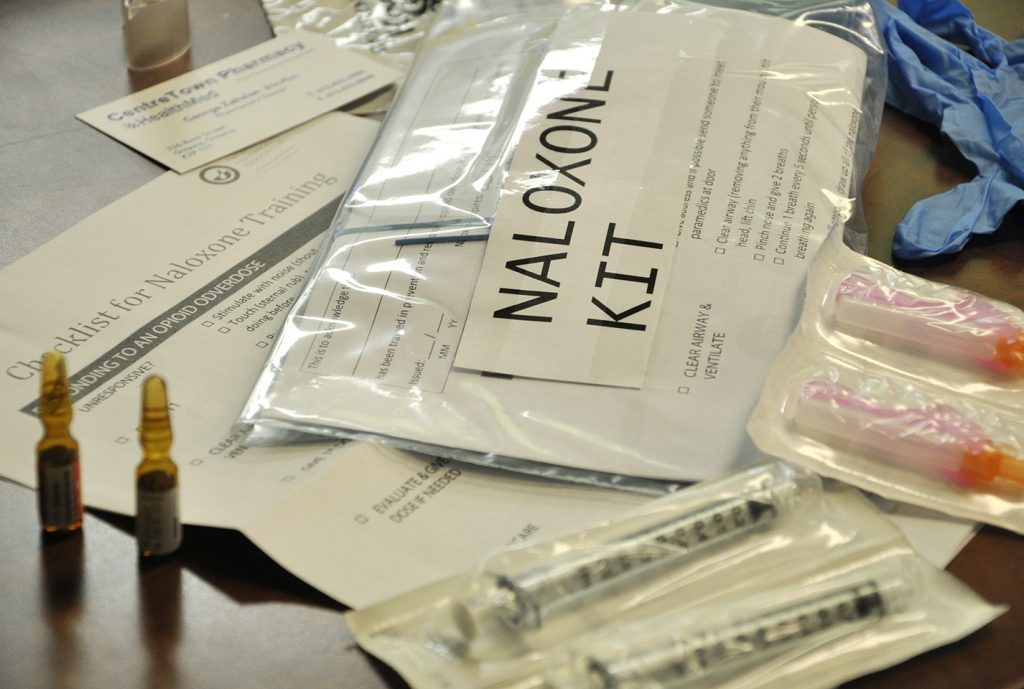Ottawa groups battling opioids
By Emily Fearon
The opioid crisis that has spread across Canada hasn’t spared the heart of its capital city. Throughout Centretown there are programs battling these dangerous drugs, the cause of an overdose epidemic in B.C.
Centretown Pharmacy, for example, has distributed almost 100 naloxone kits — used to counteract an opioid overdose and buy time for treatment — since July, when the kits became available for pharmacies to distribute.
George Zahalan, the pharmacy owner, said customers started asking for the kits in November. Before that, he had been asking customers if they needed one.
“Originally a lot of pharmacies were really hesitant to start dispensing them,” Zahalan said. “We were one of the first ones that jumped at the opportunity because we have a lot of patients in recovery programs from opioids.”
The kits are provided by the government, stocked at pharmacies, and available to anyone with a healthcard who wants one. Zahalan said a lot of people who aren’t patients or regulars at his pharmacy have come in for the kits, as well as young partygoers and ex-addicts who have friends still using drugs.
There is also work going on in Centretown to give opioid users help before a naloxone kit is necessary. The Ontario Addiction Treatment Centre, located on Somerset Street West, has two programs along these lines, supplying methadone and suboxone to drug users.
These two drugs have a similar function, said Deana Talavera, the OATC area manager.
“They block the receptors for patients… so they don’t get sick from withdrawals and it helps them essentially not get a euphoric sensation when they are taking illicit drugs with the opiates,” she said.
OATC’s downtown location, has 320 people engaged and 370 in total at the other two sites.
Talavera said many of those seeking help for opioids may have had an accident at work and were prescribed opiates by their doctor, but the prescriptions ran out.
“They turn to the streets and they don’t know why they’re getting sick,” she said. “Another thing you’re seeing in the clinics is young patients. They’re coming in with their parents because they have fentanyl parties.”
Zahalan said either his customers had an accident and were prescribed opioids for pain management, or they picked up the habit on the party scene.
“I think this coming year we’ll see a lot less overdose deaths,” he said, adding that he hopes pharmacies in rural areas will start carrying the kits. “A lot of overdose deaths from opioids occur in smaller towns.”
This week at the Centretown Community Health Centre, a Peer Overdose Prevention Program was facilitated by Ottawa Public Health. The program trains participants on overdose prevention and how to effectively use naloxone.
Another route to battle addiction is through professional psychotherapy, something counsellor Deborah Brooks has been doing for 12 years.
“By the time someone comes to see me, they’re very motivated to seek out counselling. Often they’re very ready to make some changes,” she said.
Brooks stressed the need for more preventative programs in high schools for youth, and active engagement with people who end up in hospital for an overdose.
“If people are identified as having these issues, we really need to act then. That’s when there’s an opportunity,” she said.

